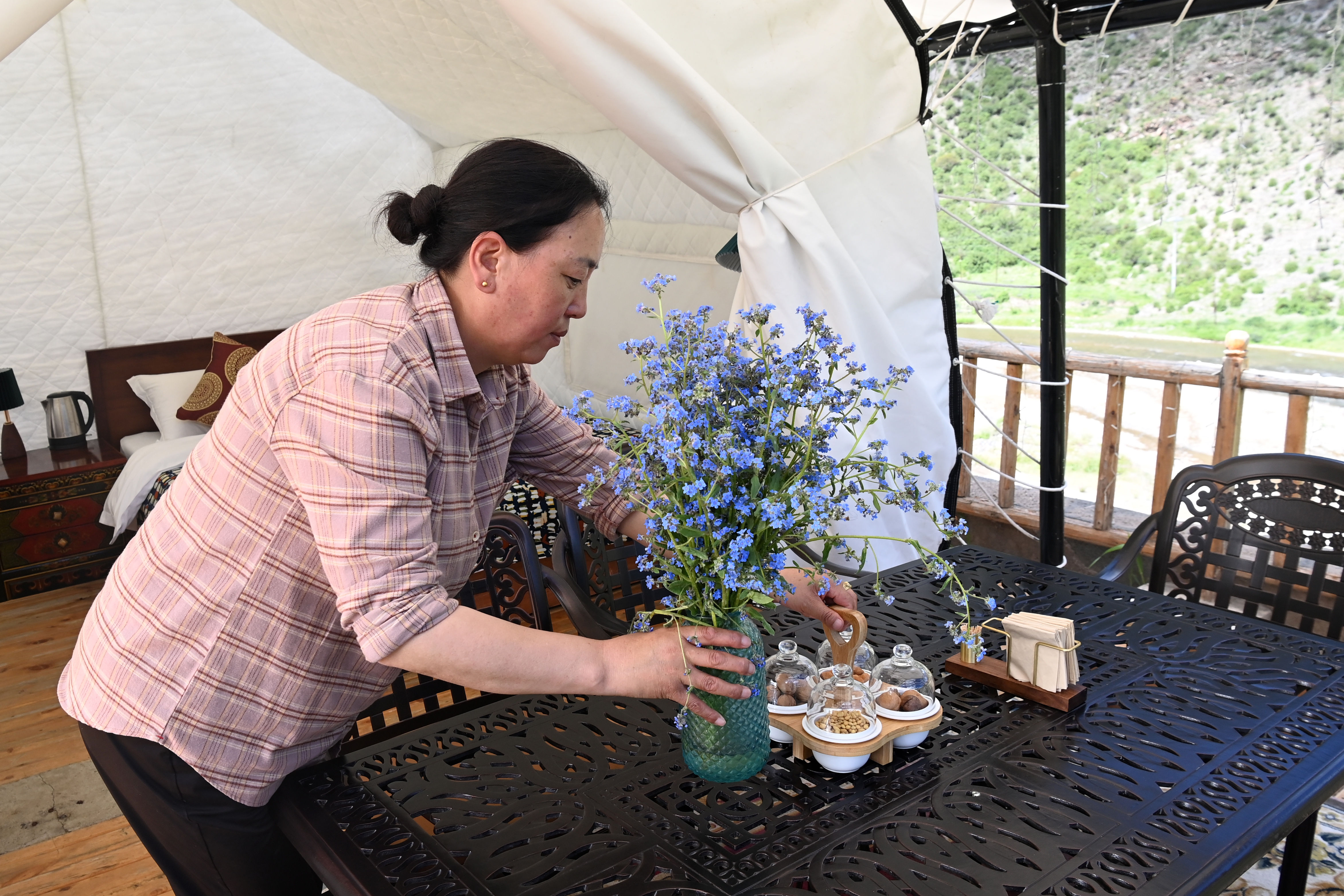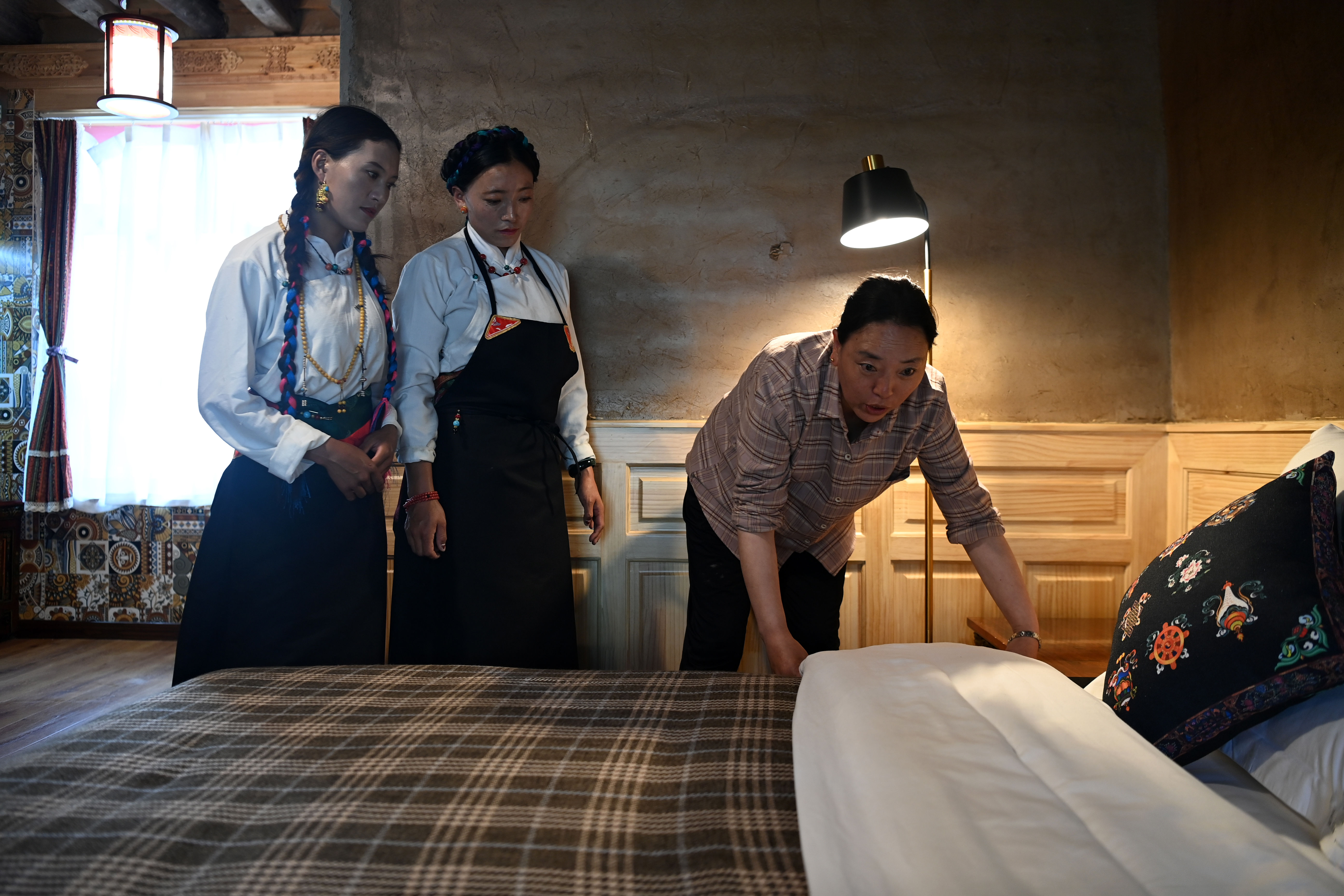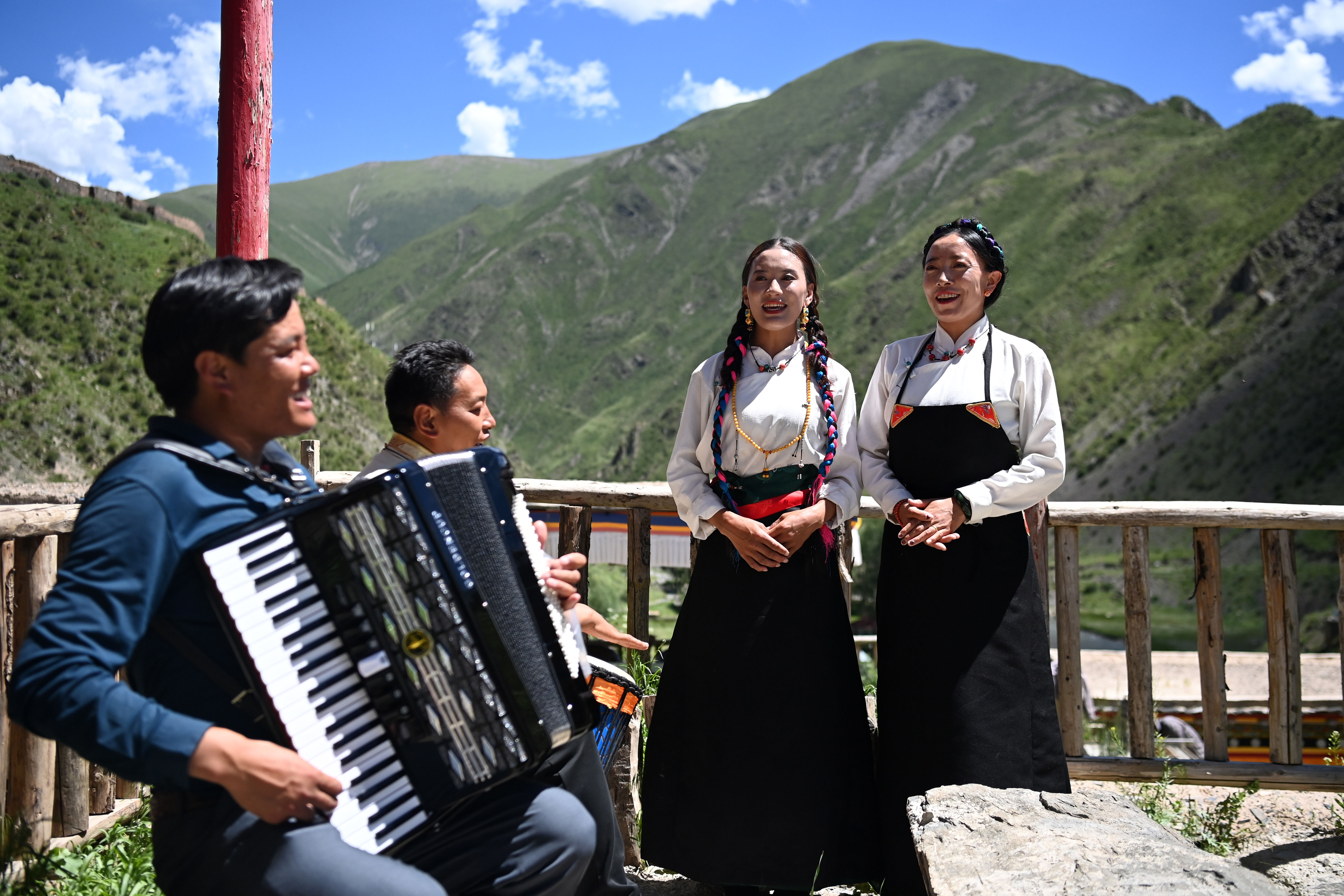Xinhua News Agency, Xining, July 18 (Reporter Fan Peishen, Liu Zexing) The clear Yiqu River is gurgling, and the traditional Tibetan-style houses are scattered.
Cai Zhuoma, 51 years old this year, is a native of Jiela Village, Anchong Township, Yushu City, Yushu Tibetan Autonomous Prefecture, Qinghai Province. His ancestors have lived here for generations. She once opened a daily necessities store and was also the head of a non-staple food company. After going around, Cai Zhuoma took root in Yushu City. In 2012, seeing the urban area of Yushu, which was rebuilt after the earthquake, getting better and better, Cai Zhuoma decided to contract a hotel in the city. Operation, reception, planning… At the beginning of the hotel industry, Cai Zhuoma took all the time to study, and gradually found out the “doorway” of hotel management.

July 16, in Yiquka Villa, Jiela Village, Anchong Township, Yushu City, Caizhuo Ma placed the vase. Photo by Xinhua News Agency reporter Fan Peishen
The hotel business is getting more and more prosperous, but Cai Zhuoma always has regrets in his heart. “Every time I go back to Jiela Village, I see the clear waters and green mountains in my hometown, but I can’t keep people. People with a little culture in the village have left, and the village is getting more and more deserted.” Talking about the past, Cai Zhuoma was quite helpless.
Jiela Village is a typical semi-agricultural and semi-pastoral village. For a long time, the people living here have built a large number of stone houses by using the unique local slate resources, forming a very distinctive traditional Tibetan village. However, with the departure of some villagers, traditional villages have not been well protected and utilized, and many houses are in a state of abandonment.
Cai Zhuoma saw it in her eyes and was anxious in her heart. “Lucid waters and lush mountains are invaluable assets. Every time I hear or see this sentence, my hometown immediately pops into my mind, and I must go back.” He also sold commercial houses and shops under his own name one after another, and returned to Jiela Village with most of his life savings to develop the rural eco-tourism industry and build an eco-tourism villa.

This is Yiquka Mountain Villa (drone photo) taken on July 16. Photo by Xinhua News Agency reporter Fan Peishen
Hearing the news, various doubts and confusions arose. The friend said, “With such a large investment, have you ever thought about how to get your money back?” The husband also didn’t understand: “The family has enough money to start a business at such an old age. Is the body able to bear it?” Cai Zhuoma’s reply was firm: “I can’t bear to see the villagers leave their hometowns and want to turn the green mountains and waters of their hometown into a green industry that enriches the people and increases their income.”
When I first arrived in my hometown, everything started from scratch. Cai Zhuoma kept visiting and inspecting, trying his best to repair and protect traditional Tibetan buildings, and popularize rural eco-tourism and building protection knowledge to villagers. “It was too busy for a while, and no one in the village understood hotel operations and rural tourism. I was doing planning, design, accounting, and purchasing by myself,” Caizhuoma said.
Last year, Yiquka Villa, a traditional village and country house built by Caizhuoma, was officially opened. It integrates homestays, eco-tourism, catering and entertainment, camping, etc. Jiela Village also signed an agreement with Caizhuoma to invest 4 million yuan of the village’s collective economic capital into the villa, which can not only help the villagers solve their employment problems, but also get dividends every year.

On July 16, Cai Zhuoma (the first from the right) demonstrated bedding to the staff of the villa. Photo by Xinhua News Agency reporter Fan Peishen
Today, Yiquka Villa has provided jobs for nearly 20 villagers in Jiela Village. , Now Zangge is the electrician of the villa, and Caizhuo is the waiter. When it comes to work, Block is full of praise. Now, relying on the income from working in the villa, the Zange family has paid off the arrears. This year, the family also built a sun room, and life has undergone earth-shaking changes. “There are still many people working outside the village who asked me if the villa is still recruiting people and want to come to the villa to work.” Block said with a smile.

On July 16, the staff of the villa sang original ecological songs. Photo by Xinhua News Agency reporter Fan Peishen
The operation of the villa is gradually on the right track. After opening last year, it received nearly 500 tourists in just over 40 days. Since this year, many tourists have come to Jiela Village to experience the natural ecology and traditional culture. “It’s not that I persevere when I see hope, but there is hope when I persevere.” Cai Zhuoma often said this sentence. In the next step, she also plans to introduce the experience of nomadic culture in the villa, develop ethnic handicrafts as souvenirs, drive more villagers to find jobs, and help rural revitalization.